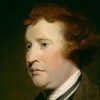“ A politician, to do great things, looks for a power, what our workmen call a purchase; and if he finds that power, in politics as in mechanics, he cannot be at a loss to apply it. ”
Edmund Burke, Reflections on the Revolution in France (1790). copy citation
| Author | Edmund Burke |
|---|---|
| Source | Reflections on the Revolution in France |
| Topic | politics loss |
| Date | 1790 |
| Language | English |
| Reference | |
| Note | |
| Weblink | http://www.gutenberg.org/files/15679/15679-h/15679-h.htm#REFLECTIONS |
Context
“There are moments in the fortune of states, when particular men are called to make improvements by great mental exertion. In those moments, even when they seem to enjoy the confidence of their prince and country, and to be invested with full authority, they have not always apt instruments. A politician, to do great things, looks for a power, what our workmen call a purchase; and if he finds that power, in politics as in mechanics, he cannot be at a loss to apply it. In the monastic institutions, in my opinion, was found a great power for the mechanism of politic benevolence. There were revenues with a public direction; there were men wholly set apart and dedicated to public purposes, without any other than public ties and public principles,—men without the possibility of converting the estate of the community into a private fortune,—men denied to self-interests, whose avarice is for some community,—men to whom personal poverty is honor, and implicit obedience stands in the place of freedom.”
source


